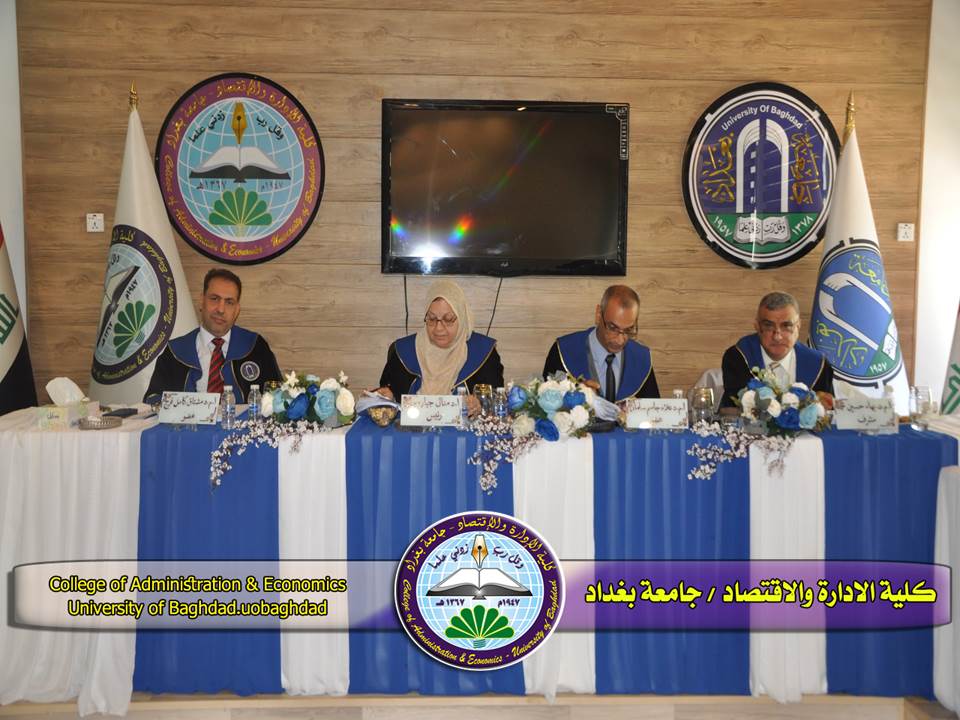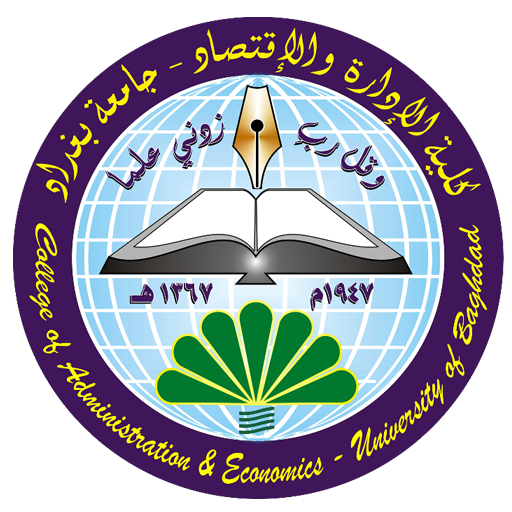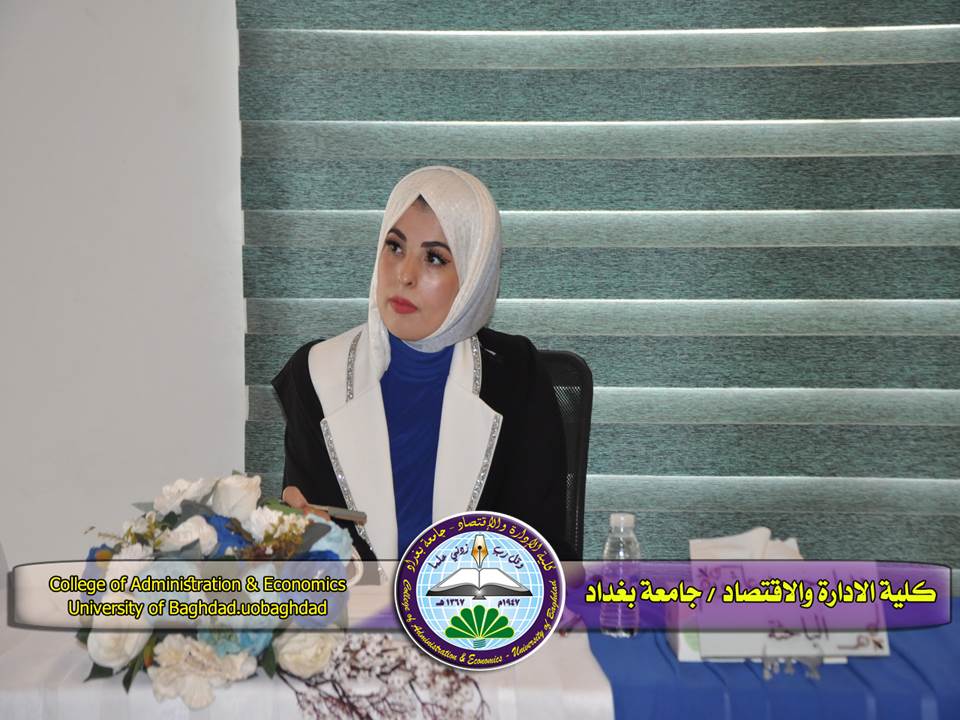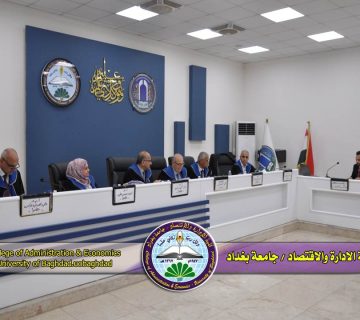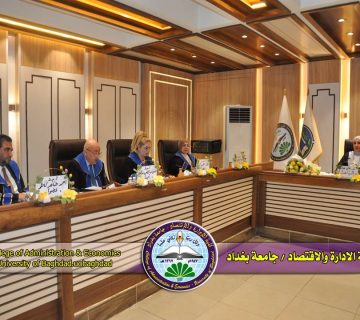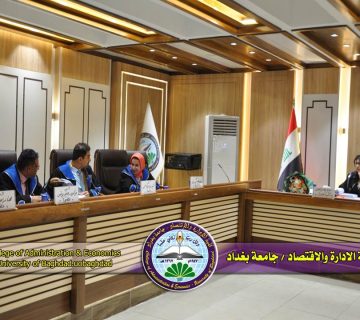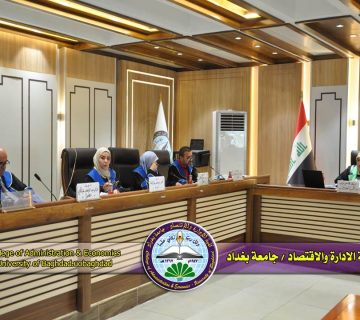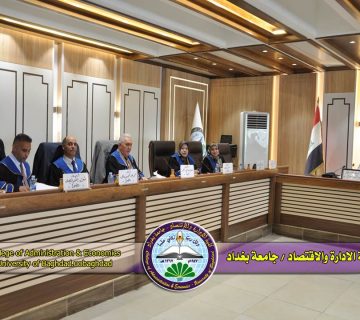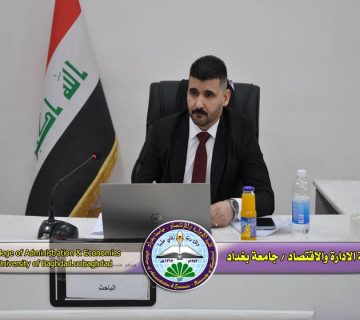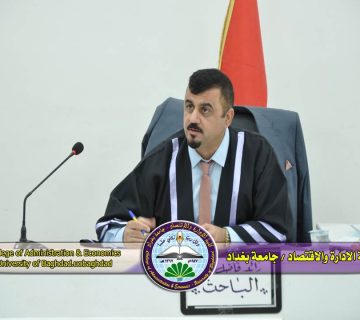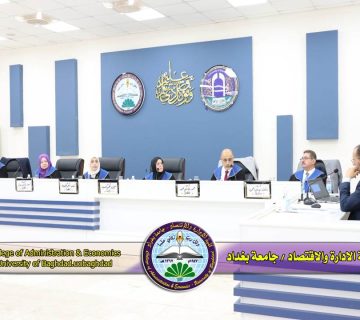The College of Administration and Economics at the University of Baghdad discussed a master’s thesis in field of Accounting by the student (Hadeel Hussein Ashour ) and tagged with (Integration of environmental pollution costs and environmental quality costs and its role in evaluating environmental performance) , Under supervision of (Assist.Prof.Dr. Bahaa hussein Muhammed)
Where the research problem is the increase in pollution, which has become a global phenomenon that coincides with the increase in industrial and service units, as well as the increasing use of polluting materials such as materials (oil). These units from polluting the environment, so the research problem.
In the adequacy of spending the costs of environmental quality to evaluate environmental performance and the extent of the need to integrate this indicator with sufficient identification of environmental pollution, which results in the lack of costs of environmental quality, and that the assessment of environmental performance of economic units requires identifying the environmental effects of the activities carried out by the units and assessing their impact on the environment. It is very important that these effects be evaluated in a comprehensive manner that takes into account the integration of the different aspects of environmental impact.
Therefore, the research problem can be determined by answering the following question:
- Does the integration of environmental pollution costs and environmental quality costs have a prominent role in evaluating the environmental performance of business units, especially economic ones?
For the purpose of achieving the goal of the research and testing the hypotheses of the research, the Najaf sewage department located in the holy city of Najaf was selected as a sample for research, and its environmental performance was evaluated from year to year during 2020-2021. Water treatment, the expenses of which are considered as environmental costs, but are included in the costs of production services and supporting administrative units. However, they need the greatest assistance in the areas of environmental pollution control and treatment because of their inability to estimate the level of pollution resulting from the operations of each of the units and their inability to assess the level of pollution itself. Environmental pollution accounting is still in its infancy and attempts to develop it require efforts and further studies. And reaching the most important recommendation, which is the establishment of sub-registers for environmental assets and expenditures, and assistance in issuing financial reports of an environmental nature that help in developing the outputs of the system, improving confidence in its performance, and the ability to be approved by many agencies, as well as working to expand audit and internal control tasks to include Environmental auditing and control tasks. It is recommended to increase research and development efforts in the field of environmental pollution accounting, and to encourage research and studies in this field, by providing financial and technical support to agencies working in this field. Cooperation between the government, universities, academic institutions and civil society should also be strengthened to improve the level of training and education and to enhance knowledge and awareness in the field of environmental pollution accounting.
It is also important to encourage large companies and institutions to adhere to environmental quality standards and improve their environmental performance, and to provide important data and information about emissions, pollution and environmental risks, and their commitment to submit reports and transparent disclosure of their contribution to environmental pollution, and this can help improve the level of accounting for environmental pollution and increase its effectiveness.
